You are using an out of date browser. It may not display this or other websites correctly.
You should upgrade or use an alternative browser.
You should upgrade or use an alternative browser.
Is China Preparing a 'Special Military Operation' In Taiwan?
- Thread starter adam7117
- Start date
"Chinese television is apparently airing these videos now.
"Today, in the face of American aggression, the people of China must unite more than ever!" — was the headline on the TV, reportedly."
Source: ASB Military News on Telegram
NB: can someone who speaks Mandarin check the original message?
Here what I was told about what was the message:
The video is just a promotional video about how China, as country is safe.
and how the soldiers, fire fighters, all different types of people are working really hard for protecting their own country and develope it and it tries to motivate Chinese people
to love their country more,. and be graceful that Chinese people are living in a peaceful country. Nothing about fighting or against America.
'China to US for briefing Taiwan: Keep your mouth shut!'
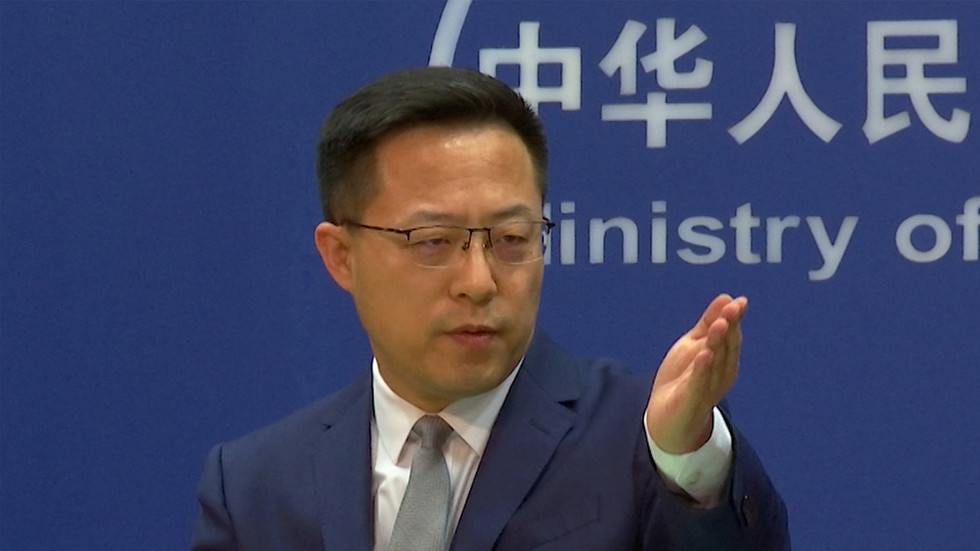
 www.rt.com
12 Nov, 2022
www.rt.com
12 Nov, 2022

China warns US not to disclose details of Xi-Biden talks
China issued a harsh response after the US said it would brief Taiwan on an upcoming meeting between the American and Chinese presidents
'The reunification is coming.'
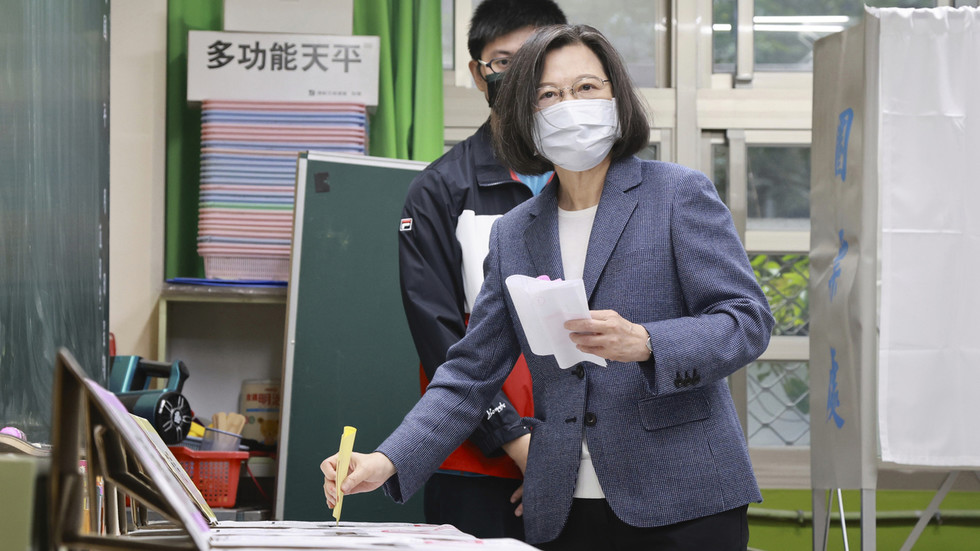
 www.rt.com
26 Nov, 2022
www.rt.com
26 Nov, 2022

Taiwan’s ruling party suffers election defeat
Taiwanese President Tsai Ing-wen stepped down as head of the ruling Democratic Progressive Party after a series of local election defeats
'Bloody reunification: The US is preparing ground (another war) for making profit.'

 sputniknews.com
11 hours ago (Updated: 4 hours ago)
sputniknews.com
11 hours ago (Updated: 4 hours ago)

US Worried Aid to Ukraine Could Cause Arms Shortage for Taiwan
WASHINGTON (Sputnik) - US authorities are concerned that the flow of weapons to Ukraine could cause a deficit in terms of Washington's long-term plans to arm Taiwan amid increasing tensions with China, US media reported.
The guys from the Duran are drawing attention to the fact that the DPP, ruling party in Taiwan, suffered a heavy defeat in the recent elections. It would appear that people have voted for leadership which has a less hardline stance on China, and their policy towards Taiwan. It seems likely that avoiding conflict is their main motivation. There has been very little coverage of this in Western press, while much attention has been focused on the relatively small lockdown protests in China (which the guys also briefly discuss).
Unfortunately, as Mercouris points out, it would be very premature to suggest that the risk of conflict is reduced by this election. He rightly points out that Zelensky was elected by people with similar motivations to avoid conflict with Russia, and we saw how that turned out. The globalists will see this election result as counter to their aims and may even ramp up their strategy of provoking China into action.
Unfortunately, as Mercouris points out, it would be very premature to suggest that the risk of conflict is reduced by this election. He rightly points out that Zelensky was elected by people with similar motivations to avoid conflict with Russia, and we saw how that turned out. The globalists will see this election result as counter to their aims and may even ramp up their strategy of provoking China into action.
Hmmm, I wonder why this vote would be allowed in a US client state? Surely they are able to do vote rigging, (you would think so anyway). Just my initial thought...The guys from the Duran are drawing attention to the fact that the DPP, ruling party in Taiwan, suffered a heavy defeat in the recent elections. It would appear that people have voted for leadership which has a less hardline stance on China, and their policy towards Taiwan. It seems likely that avoiding conflict is their main motivation. There has been very little coverage of this in Western press, while much attention has been focused on the relatively small lockdown protests in China (which the guys also briefly discuss).
Unfortunately, as Mercouris points out, it would be very premature to suggest that the risk of conflict is reduced by this election. He rightly points out that Zelensky was elected by people with similar motivations to avoid conflict with Russia, and we saw how that turned out. The globalists will see this election result as counter to their aims and may even ramp up their strategy of provoking China into action.
Candice
Jedi Master
Hmmm, I wonder why this vote would be allowed in a US client state? Surely they are able to do vote rigging, (you would think so anyway). Just my initial thought...
The KMT were the original puppets of the US.
Both major Taiwanese political parties, the DPP and KMT play their roles but are just two sides of the same coin.
Look here from an article written earlier in the year.
KMT chairman touts party’s close ties with the US
Chu, who is on an 11-day trip to the US, made the remarks during a visit to the Hoover Institution at Stanford University in California on Thursday, and highlighted that the KMT and the US share memories of fighting side by side.
The US and China, which was ruled by the KMT at the time, were allies during World War II, and more than 250,000 US personnel served in what was known as the “China-Burma-India” theater.
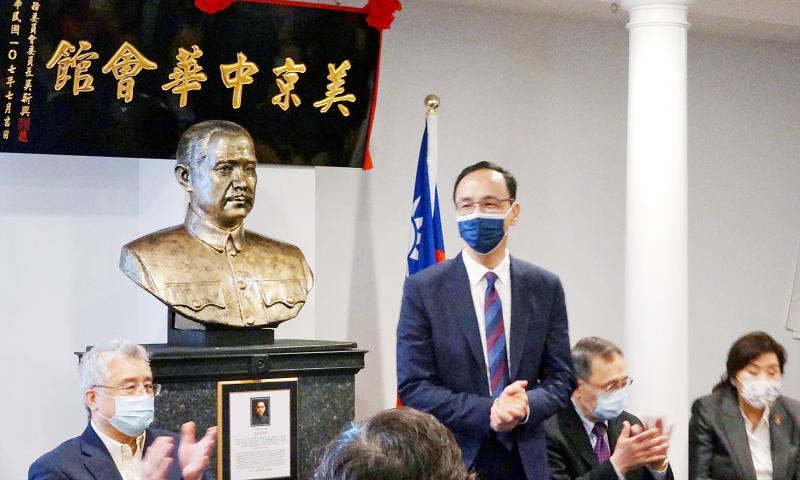
The KMT has fought against communism for the past 100 years and in bloody battles to defend Taiwan, but is still willing to maintain exchanges with China’s private sector, Chu said.
While at the Hoover Institution, Chu met with US experts and academics, including political sociologist Larry Diamond and political scientist Kharis Templeman, discussing issues related to cross-strait security and relations.
The US academics raised concerns about Taiwan’s local government elections at the end of the year, to which Chu expressed cautious optimism, the KMT said in the statement.
In addition to controlling more than two-thirds of the counties and cities in Taiwan, the KMT would field outstanding candidates to challenge for the municipalities, counties and cities that it does not control, Chu said.
At a press event with Taiwanese media in Washington on Sunday, Chu said he would reopen the KMT’s representative office in the US after 14 years.
Chu said the KMT, Taiwan’s main opposition party since 2016, had not had a voice in Washington since the closure of its representative office, and the aim of reinstating it was to enable the US to better understand the party’s position and the different voices of Taiwan.
The chairman is to attend a plaque-unveiling ceremony to reopen the KMT’s liaison office in Washington tomorrow. The party closed it in 2008 shortly after the election of Ma Ying-jeou (馬英九) as president.
Asked if the move was in any way linked to him possibly running for the presidency in 2024, Chu rejected the idea, saying that it was part of his job as the party chairman to engage in party politics.
Reopening the office would also establish a communications channel with the US for future KMT presidential candidates, Chu added.
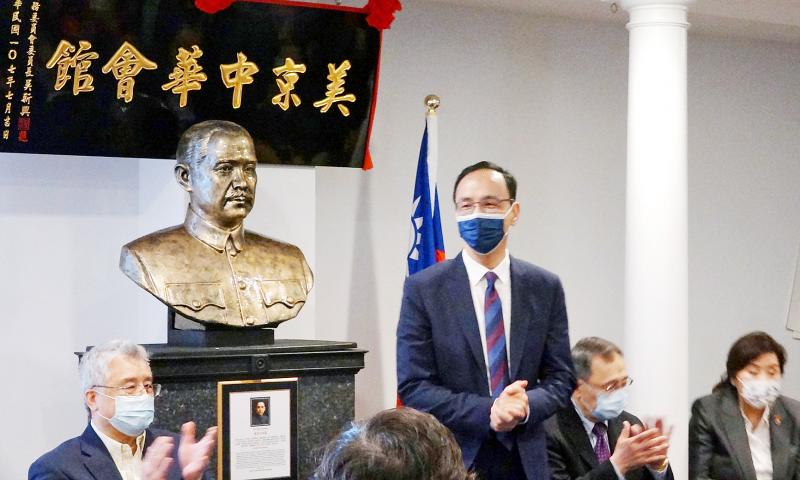
KMT chairman touts party’s close ties with the US - Taipei Times
Bringing Taiwan to the World and the World to Taiwan
The KMT were the original puppets of the US.
Yes, I think there is a gulf between, what happened, and what it means. I think deep down, most people think that things can be saved, or someone will come along and save us. Of course, the PTB can play that like a fiddle, I think that is what is happening here.
The other party gets voted in, and that is huge news... so they say, but deep down, like you say, ultimately both parties are just different sides of the same coin.
I think for materialists at heart, they need that hope that things will change, things will get better. But that depends on your subjective viewpoint. What is, getting better for you, might be getting worse to someone else. From the point of view of the ptb, maybe they see that things are getting better...

'NATO is seeking to find more "proxy friends" in Asia in its war with China.'
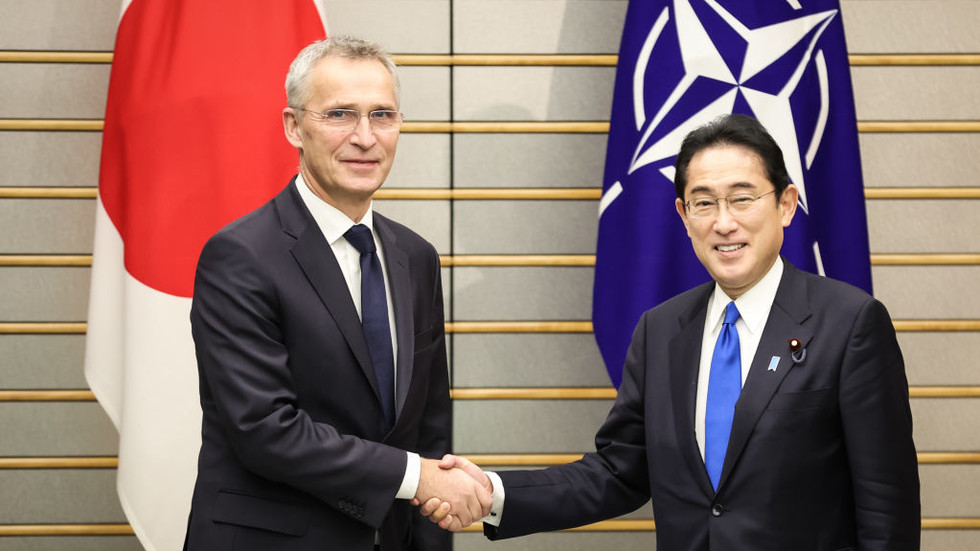
 www.rt.com
1 Feb, 2023
www.rt.com
1 Feb, 2023
'Is US preparing ground to make Taiwan "a new Ukraine"?'

China-Russia relationship a threat – NATO
NATO Secretary General Jens Stoltenberg says China’s expanding ties with Russia pose a threat to the ‘international order’
'Is US preparing ground to make Taiwan "a new Ukraine"?'
'The US is building four military bases in Philippines to establish "permanent peace" with China.'
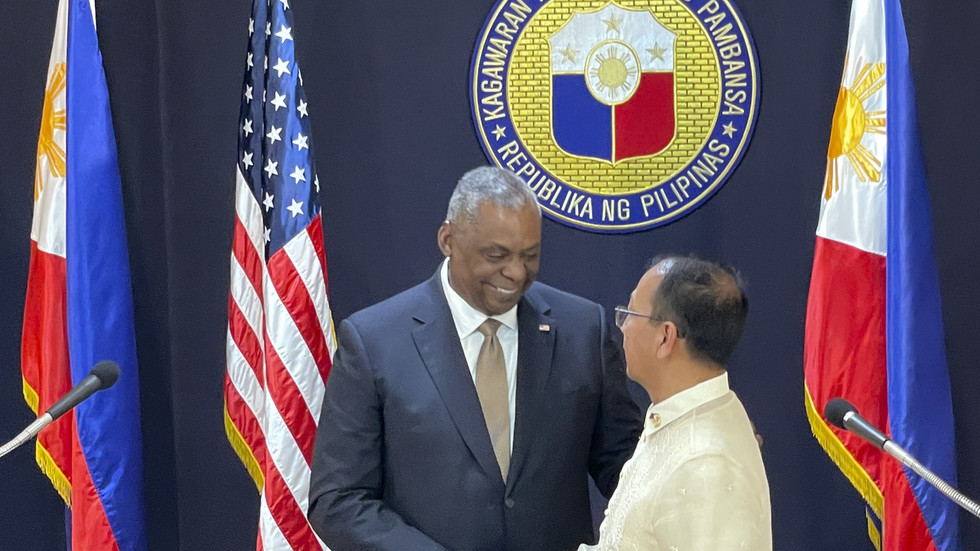
 www.rt.com
2 Feb, 2023
www.rt.com
2 Feb, 2023

US set to boost military presence near China
The US and the Philippines have reached a deal to boost Washington’s military presence in the country
The balloon story probably belongs here.
I thought Blinken's response was hilarious.
Secretary of State Antony Blinken has said China's decision to fly an apparent spy balloon over the US is "unacceptable and irresponsible". The top American diplomat has abruptly cancelled a trip to Beijing, which would have been the first high level US-China meeting there in years
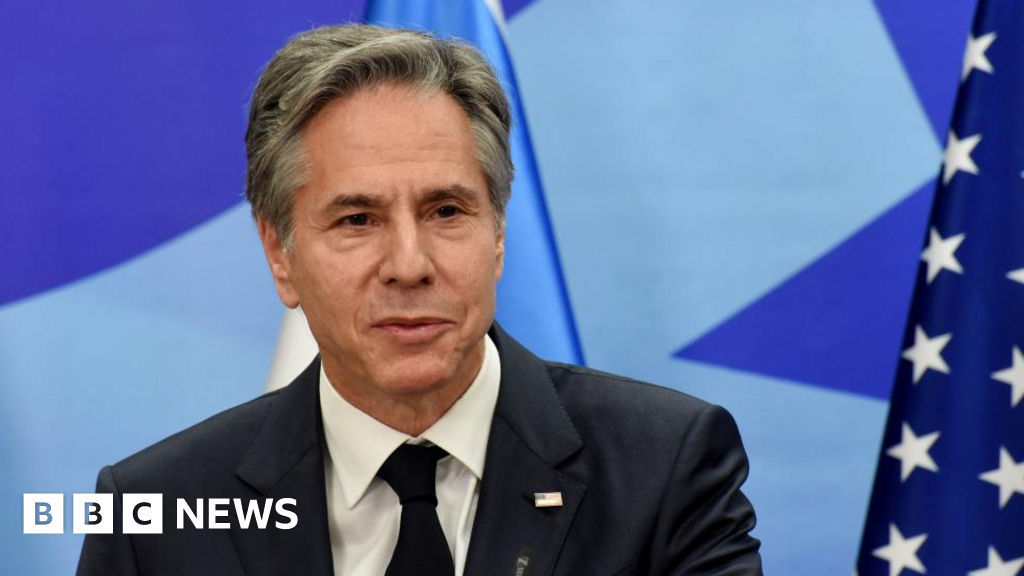
 www.bbc.com
www.bbc.com
But clowns LOVE balloons! What's wrong Anthony??
I thought Blinken's response was hilarious.
Secretary of State Antony Blinken has said China's decision to fly an apparent spy balloon over the US is "unacceptable and irresponsible". The top American diplomat has abruptly cancelled a trip to Beijing, which would have been the first high level US-China meeting there in years

Top US diplomat says China balloon over US is 'unacceptable'
The US secretary of state abruptly cancels a trip to Beijing over the "violation of our sovereignty".
But clowns LOVE balloons! What's wrong Anthony??
As one Twitter user put it, the balloon may be Chinese but the hot air is 100% American.
'Now tell me that US is not preparing for war with China.'

 sputniknews.com
By Fantine Gardinier - 43 minutes ago
sputniknews.com
By Fantine Gardinier - 43 minutes ago

Taiwan Test-Fires Cruise Missile Capable of Striking Deep Inside China, Reports Say
The Chinese breakaway province of Taiwan has continued to develop its offensive strike abilities, including cruise missiles and other surface strike weapons that can reach far from the island’s shores. The weapons are intended as a...
[...]
This is just the latest in a series of cruise missiles and surface strike missiles developed or purchased by the Taiwanese government in recent years. That includes Tomahawk and JASSM-ER cruise missiles bought from the United States, and the extended-range Yu Feng (Cloud Peak) supersonic cruise missile program, which Taipei has claimed can strike the Chinese capital of Beijing.
Trending content
-
-
-
-
Thread 'Coronavirus Pandemic: Apocalypse Now! Or exaggerated scare story?'
- wanderingthomas
Replies: 30K
